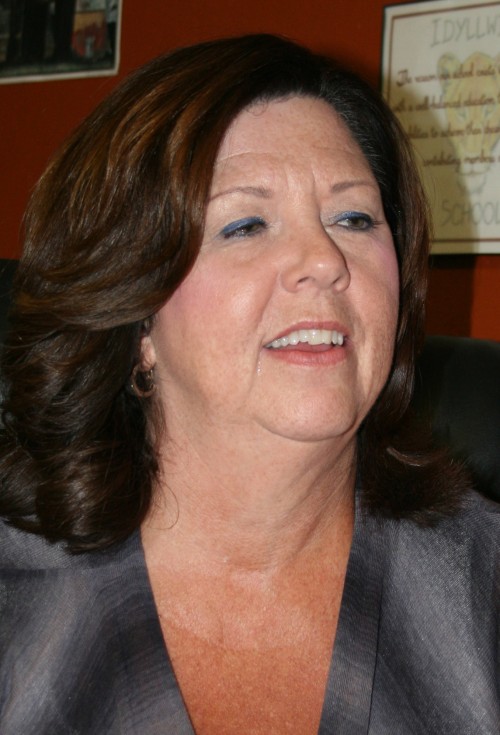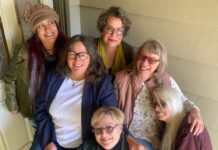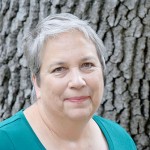
Photo by Marshall Smith
Lisa Absher, with a bachelor’s and master’s degree in Communication Disorders, has joined the Idyllwild School faculty as a speech-language pathologist providing services to preschool to middle school students.
Absher’s training and experience equip her to treat a variety of communication and swallowing disorders including autism, dysphagia, Down syndrome, fetal alcohol syndrome and traumatic brain injury. “I have worked with people from the ages of 1 through 104,” she said.
Absher has worked constantly since receiving her master’s from Appalachian State University in Boone, North Carolina, in 1999, including: as a speech and language pathologist for Navajo Reservation pre- and elementary-school students in New Mexico; for Native American Tlingit pre- through high-school students in Juneau, Alaska, and for school districts including those in Gallup, New Mexico, San Jacinto, Corona-Norco and Banning.
She began work for Hemet Unified in August of this year. Late in her career, Absher decided to hone her medical skills by serving in both hospital and rest-home environments. “Any speech therapist with a master’s has the credentials to work in those settings,” said Absher. “The training is experiential and gave me the opportunity to work with patients with traumatic brain injuries and other conditions needing speech therapy.” In addition to being at Idyllwild School on Tuesdays and Thursdays, Absher also provides speech and language pathology treatment for Hamilton elementary, middle and high school students.
Of her work, Absher said, “It is truly interesting and you can do so much with it. Whether you are working with someone 2 or 92, the most important thing is to establish rapport and trust. When talking is difficult, it is important to have the trust so that when you correct them they can understand and accept that you are trying to help.”
Asked what kinds of issues she encounters in school situations, she said, “With little ones, they may not be producing sounds or words correctly, omitting beginning or ending sounds. To them they think they are saying a word correctly. I ask them to look at me, and imitate me when I say the word, then to repeat if they don’t add in what they had been missing. Trust is important in the process.
“With middle- or high-school students, there might be autism issues, where the students lack the ability to understand their peers’ emotions, expressions and feelings. Finding common ground and establishing rapport is again where you begin.”
Absher said another big role for a speech therapist within a school faculty is to also educate and assist teachers, administrators and parents in understanding how speech issues and impairments can affect performance in the classroom. “Again, with autism, the brain’s cellular structure makes it difficult for the students to interpret facial gestures. They don’t get humor or figurative language. So a teacher might misinterpret the students’ lack of understanding as their just being difficult or argumentative.”
Absher said speech therapists are always listening for voice problems and indications of underlying issues. As an example, a child’s difficulty with pragmatic social skills, such as taking turns, changing a routine, loosing in a game situation, making eye contact or greetings, could be indicative of underlying structural issues.
Absher is relaxed and easy to engage. Born near Boone, North Carolina, in the Appalachian’s Great Smoky Mountains, Absher has the graciousness and politeness of her country-girl upbringing. “I tried to find work near Boone after I graduated, but there was none to be had,” she said. “They say you can take the girl out of the country but you can never take the country out of the girl, and that’s the case with me.”
Absher said she has four brothers, had been married for 20 years, and then divorced for 20. “But I’m getting married again this coming Saturday, to Michael Houghton in Hemet. I couldn’t have children before but Mike has two children and three grandchildren. So now I will be a grandmother,” Absher smiled, as she does often.










